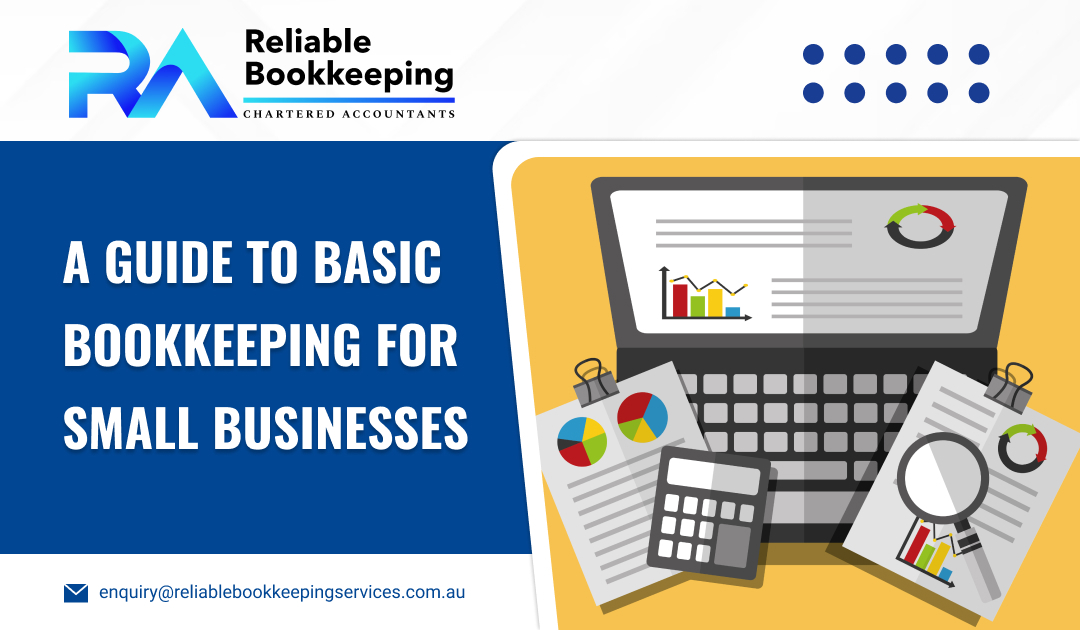As a small business owner, it is crucial for you to maintain accurate and updated business books so you can make informed decisions. However, many business owners find it difficult and time-consuming to manage bookkeeping for small businesses. In this blog post, you’ll learn how business books should be handled.
What is bookkeeping?
Bookkeeping includes the day-to-day recording of a company’s financial information. It includes tasks such as recording purchases, sales, receipts, payments, and other records in an organised manner. These records act as the foundation for creating financial statements, such as the income statement, cash flow statement, and balance sheets that offer insight into a company’s assets, profitability and cash flow.
How to manage bookkeeping for small businesses?
To manage your business books, you need to keep a few things in mind. Here is a step-by-step guide to help you know how bookkeepers in Melbourne can help you manage your business books:
Understand the significance of bookkeeping
Bookkeeping involves recording all financial transactions associated with the business. It monitors business assets, equity, liabilities, income and expenses. Accurate bookkeeping provides you with a clear picture of your business’s financial status, allowing you to make informed decisions and meet tax obligations.
Right bookkeeping method
Similar to the accounting method, there are two main approaches to bookkeeping: cash-basis and accrual-basis. The cash-basis method logs transactions at the time money is exchanged, whereas the accrual-basis method records transactions when they happen, regardless of payment timing. For many small businesses, the cash-basis method offers greater simplicity and directness.
Using business and personal accounts separately
To ensure financial records are accurate when compiling financial reports, it’s crucial to maintain separation between personal and business finances. Establish dedicated business bank accounts and credit cards, using them solely for business transactions. This practice simplifies small business bookkeeping and ensures adherence to tax regulations.
Regular record-keeping
Consistency is crucial in small business bookkeeping. If you have a bookkeeper, then you can be sure that each financial transaction has been recorded by your bookkeeper. If you can’t record all financial transactions, it can result in bookkeeping errors and missed tax deductions.
Bank account reconciliation
It is vital to prepare a bank reconciliation statement for your business. The Bank account reconciliation process ensures that your financial records are up-to-date and accurate and helps address errors and discrepancies.
Account payable and account receivable
Monitor outstanding invoices and bills. Your bookkeeper will set up a system to send invoices and follow up on late payments. As a result, you will stay on top of your accounts payable to avoid late payments.
Prepare financial statements
Generate and review financial statements daily, such as balance sheets, income statements and cash flow statements. These financial statements offer valuable insight into your business’s financial performance and help you make the right business decisions.
Get professional guidance
While many small business owners manage their bookkeeping, many business owners choose to seek help from a professional bookkeeper. This can save time, provide expert advice, and ensure accuracy on financial matters. Despite this, if you are looking for tax advice, you can seek help from a tax agent in Melbourne.
Benefits of small business bookkeeping services
Whether you run a small business or a large business, it is worthwhile to get bookkeeping services. By getting bookkeeping services for your business, you will have numerous benefits:
- You will have updated financial records from which you will know about your company’s profitability and cash flow.
- You can comply with tax requirements, including filing tax returns and claiming potential tax deductions on business expenses.
- You will have updated financial records to make the right business decisions.
- You can make a budget plan for your business.
- You will have information about your incomings and outgoings, including expenses and overdue invoices.
Conclusion
The blog outlines the information on the significance of bookkeeping services for small businesses. If you are looking to manage your business books, you can choose our Reliable Bookkeeping Services.

